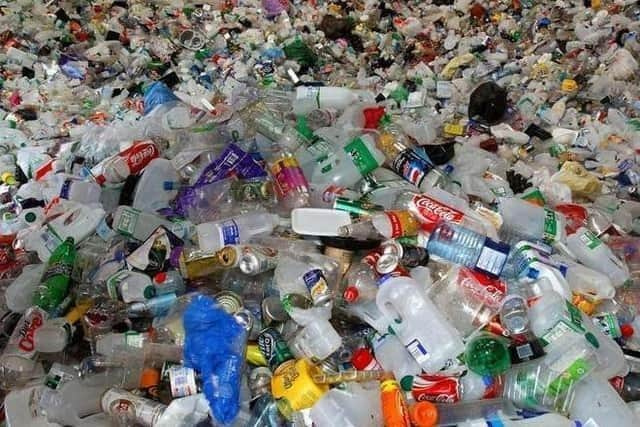Over 33k tonnes of recyclable cardboard and paper sent overseas from Hertfordshire
and live on Freeview channel 276
More than 33,000 tonnes of paper, card and cardboard collected from homes in Hertfordshire were sent overseas for reprocessing in 2022/23, according to the latest available data.
The county council disposes of a wide range of recyclable materials collected at the kerbside or left at recycling centres – including paper, glass, plastic and textiles.
Advertisement
Hide AdAdvertisement
Hide AdAnd those materials are then sent to destinations in the UK or overseas to be reprocessed.


Annual data published by the Herts Waste Partnership identifies the ‘final destinations’ of these materials.
And that shows that in 2022/23, around 36,000 tonnes – equivalent to 27 per cent of all ‘dry’ recyclables – were sent overseas for reprocessing.
The bulk of the material sent overseas was made up of cardboard, card and paper – amounting to 33,000 tonnes.
Advertisement
Hide AdAdvertisement
Hide AdThat’s equivalent to around 67 per cent of all card, cardboard and paper collected in the county in 2022/23.
Most of it – 29,616 tonnes – was sent to Asia, with a further 1865 tonnes sent to Europe and 1740 elsewhere.
India was the country that received the most taking 20,946.92 tonnes of card, cardboard and paper.
India also took 74.18 tonnes of tyres – that’s around half of the 148.81 tonnes of tyres collected across the county.
Advertisement
Hide AdAdvertisement
Hide AdOverall, the data suggests that there were 133,196 tonnes of ‘dry’ recyclables collected in Hertfordshire in 2022/23.
Of the 36,000 tonnes sent overseas for reprocessing, there were a total of 29,698 tonnes that were sent to Asia, 1040 to Africa and 3448 to Europe – with a further 1780 recorded as ‘overseas various’.
In addition to card, cardboard and paper, ‘dry’ recyclables includes materials such as metals, glass, tyres, plastics, batteries, books, textiles, waste electricals and wood.
The data – reported in the Hertfordshire Waste Partnership’s annual report – shows all of the glass, wood, scrap metal and waste electronic items were recycled within the UK.
Advertisement
Hide AdAdvertisement
Hide AdMost of the textiles and footwear sent overseas, according to the report, were used to supply second-hand clothing markets.
Textiles that remained in the UK – amounting to 783 tonnes – were, it says, mainly used to make bedding and insulation materials.
The report shows that 1040 tonnes of textiles and footwear were sent to African countries – including Ghana, Benin and Niger.
Of the 12,986 tonnes of plastics collected, the majority – 11,711 tonnes – was processed in the UK .
Advertisement
Hide AdAdvertisement
Hide AdCommenting on the data, a spokesperson for the Hertfordshire Waste Partnership said that they would prefer for all of the materials to be recycled within the UK.
But they stressed that they were confident that the recycling companies they used would be recycling “properly”.
“There are strict regulations in place to make sure that any waste sent abroad for recycling is transported and processed responsibly, and we’re confident that the commercial recycling companies Hertfordshire councils use are recycling our residents’ waste properly,” said a spokesperson for the Hertfordshire Waste Partnership.
“We would obviously prefer for all these materials to be recycled in the UK, and 70 per cent of the material our residents put out for recycling is processed in this country, however we are aware of the commercial reality for recycling companies dealing with this material under current market conditions.
Advertisement
Hide AdAdvertisement
Hide Ad“We’re hopeful that the Government’s Simpler Recycling programme, due to be implemented over the next 12 – 24 months, will act an incentive for further investment in UK based reprocessing capacity that will reduce the need for exporting such materials longer term.”
